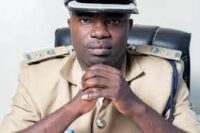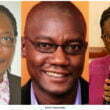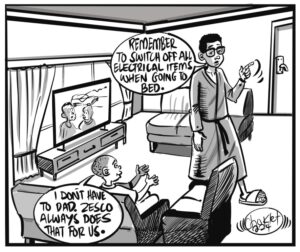Amnesty International Regional Director for Southern Africa Deprose Muchena says there is a cynical ploy by the ruling party in Zambia to silence all opposition political parties.
In a statement released after Lusaka magistrate David Simusamba referred Hichilema to the High Court to seek judicial review, Muchena described the court’s decision as persecution through prosecution.
“Hakainde Hichilema and his five employees are currently undergoing persecution through prosecution and the charge against them must be dropped. Their arrest and detention is part of a cynical ploy to silence all political opposition in Zambia,” Muchena said.
“This treason charge is designed to intimidate Hichilema and stop him and others in the opposition from taking part in public affairs. The Zambian authorities must stop misusing the criminal justice system to target and harass the political opposition.”
Earlier today, magistrate Simusamba allowed Hichilema to seek judicial review in the High Court of Zambia in a matter where the opposition leader is charged with treason.
Magistrate Simusamba’s decision came on the basis that he could not ascertain whether the Certificate of Committal for HH to be tried in the High Court was properly issued by the National Prosecutions Authority considering that it was not signed by the substantive Director of Public Prosecutions.
In his ruling, magistrate Simusamba said there had been a trend by state advocates to sign certificates of committal on behalf of the DPP even though the CPC did not authorise them to do so.
He however said he could not rule on whether or not the tendency could be allowed to continue thereby granting the defense team leave to challenge that in the High Court.
“By practice, certificates have been presented before this court by State advocates and public prosecutors alike and accused persons have been committed to the High Court on such certificates. The question is, is this practice we have been following for the long time lawful? I cannot answer this question in the affirmative because there is no clear authority as to that. Equally, I cannot answer it in the negative based on my interpretation of the Criminal Procedure Code as it is merely observation…If I did that, I may be acting in excess of my jurisdiction because it will tend to challenge the powers of the DPP which this court has no jurisdiction…I am not prepared to accept that this is a Constitutional issue so that I can refer it to the appropriate court under article 82 of the Constitution but I hold the view that it is a proper matter for judicial review. Therefore, I here allow an adjournment to enable the accused person seek a declaration on the certificate in the High Court. If after 15 days I have not recieved communication to this, then I will have the option of proceeding as per practice,” said magistrate Simusamba.
Speaking to journalists after the court hearing, Hichilema said he was paying the price.
“You heard the deliberations in court, not satisfactory, but this is the price that we have to pay. This is punishment, this is hatred. The world must pay attention to what is happening in Zambia, I am talking about the judgment that magistrate [Greenwell] Malumani gave, that is what we are going to rely on. There was no investigation. We were arrested brutally by these people here (pointing at police officers), robbed, dehumanised for a crime we did not commit,” Hichilema said.
Asked to comment on the deportation of South Africa’s DA leader Mmusi Maimane, Hichilema said that showed the brutality of the PF government.
“That shows how brutal this system is, how suppressive this system is. I give Mmusi Maimane kudos for his courage and understanding that justice denied somewhere is justice denied everywhere. He also correctly expresses that South Africa which is the leading power in our region, SADC, cannot be indifferent to dictatorship going on in Zambia because without the support of Zambian citizens, aparthied system would still have been there in South Africa and president Maimane understands that so it is important to the people of South Africa, other parts of Africa and the world at large to understand that we owe each other an obligation to protect the rights, freedoms and human rights across the global village,” said Hichilema.












